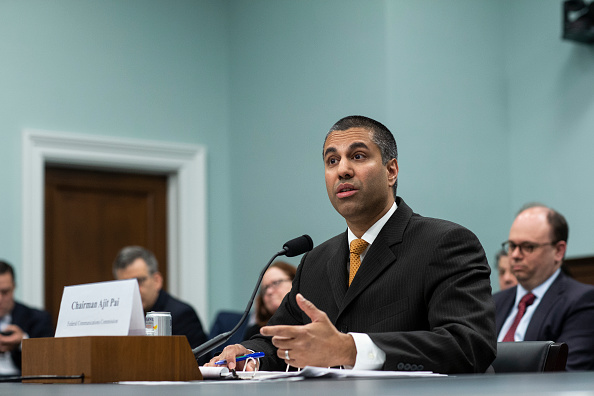FCC’s Dereg Smackdown Reverberates
The smarter way to stay on top of the multichannel video marketplace. Sign up below.
You are now subscribed
Your newsletter sign-up was successful
WASHINGTON — Federal Communications Commission chairman Ajit Pai’s ongoing efforts to deregulate broadcasting in the face of increased competition were dealt a big blow last week, a hit that puts the brakes on that effort and could call into question the just-approved Nexstar Media Group-Tribune Broadcasting merger.

The 3rd U.S. Circuit Court of Appeals on Sept. 23 vacated the Pai-led deregulatory 2017 order that allowed combinations of TV stations, radio stations and newspapers in a singep market; for dual station ownership in smaller markets; and for the same company to own two of the top four-rated stations in a market.
The court invalidated those changes because it said the FCC had not sufficiently explored how deregulation would impact station ownership by women and minority group members, something the court had instructed the agency to do the last time it ruled the FCC had not sufficiently justified deregulation.
Cable operators weren’t joining the parade of consolidation critics crowing over the decision, but they have had issues with the power they say FCC deregulation has given broadcasters in retransmission-consent negotiations, so they weren’t complaining either.
JSAs in Jeopardy
One broadcast deregulation advocate pronounced the ruling as the death knell for the various sharing arrangements — joint sales agreements ( JSAs) and shared services agreements (SSAs) — that cable operators have argued allow TV stations to skirt ownership rules and gain untoward leverage in negotiations. They also said it would end any thoughts Pai might have for loosening the 39% national ownership cap.
It could also, conceivably, throw a monkey wrench into Nexstar’s purchase of Tribune stations. While that deal has closed, it included some elements that were only allowable under the looser rules that have now been invalidated. A 30-day window to file petitions to reconsider the deal remains open.
The smarter way to stay on top of the multichannel video marketplace. Sign up below.
Common Cause, one of the parties to the legal challenge, told Multichannel News it was examining “all the implications it opens up for potential action on past mergers,” which could include Nexstar-Tribune.
A spokesperson for Free Press — one of the Nexstar-Tribune’s biggest critics, though not a party to the media ownership suit — said it had no plans to challenge the deal.
The court instructed the FCC to do some real diversity due diligence before trying to deregulate broadcasting again, but Pai instead vowed to appeal and blamed the court for refusing to let the FCC modernize the regulations to meet the marketplace.
“It’s become quite clear that there is no evidence or reasoning—newspapers going out of business, broadcast radio struggling, broadcast TV facing stiffer competition than ever—that will persuade them to change their minds,” Pai said.
Contributing editor John Eggerton has been an editor and/or writer on media regulation, legislation and policy for over four decades, including covering the FCC, FTC, Congress, the major media trade associations, and the federal courts. In addition to Multichannel News and Broadcasting + Cable, his work has appeared in Radio World, TV Technology, TV Fax, This Week in Consumer Electronics, Variety and the Encyclopedia Britannica.

